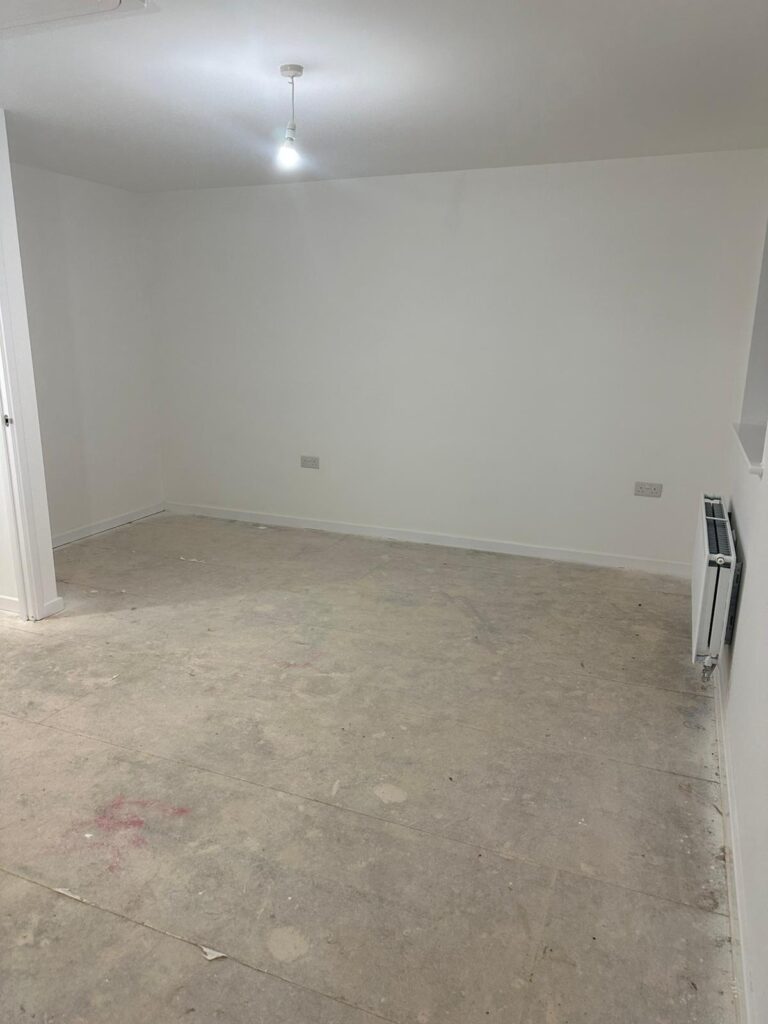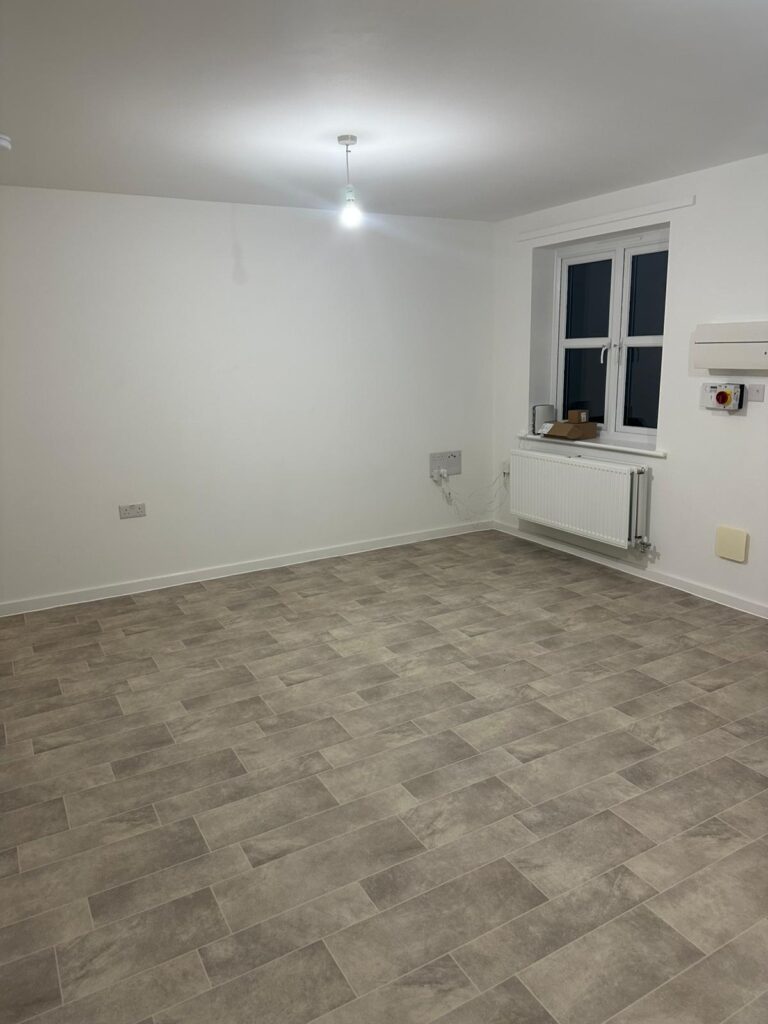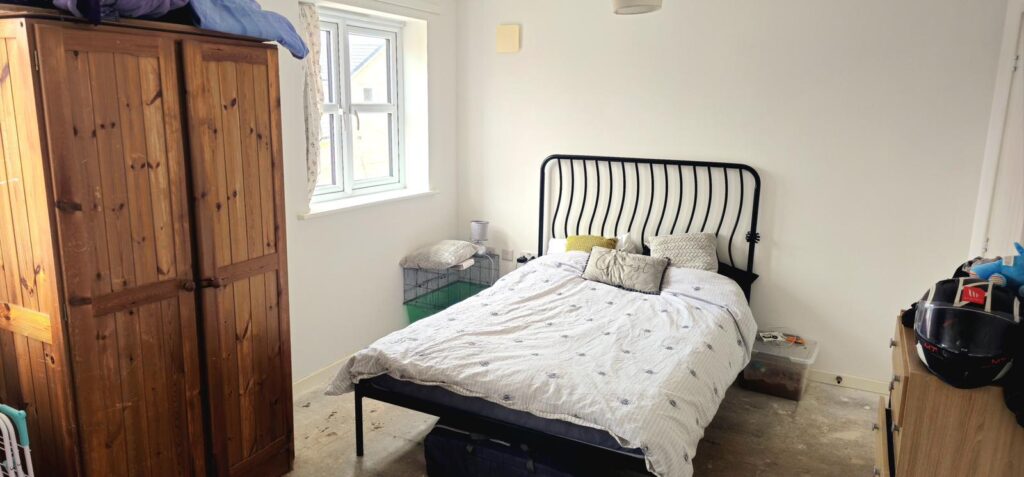Young people moving into council housing after experiencing homelessness face mounting setup costs as local authority grants become tightened or unavailable altogether.
Young people moving from supported accommodation into council housing are being plunged into poverty – or thousands of pounds worth of debt – thanks to local authority budget cuts, youth homelessness charities fear.
Young people experiencing homelessness across the UK often through no fault of their own, some of whom have waited years for council housing to become available, could face a bill of about £1,800 to install carpets, let alone basic needs such as an oven, washing machine or fridge, in their first few months of independent living.
If they receive a grant to cover some of these costs, they could still be waiting two months for these items to arrive, with reports of young people storing groceries in their work fridge or young mothers having nowhere to wash their children’s clothes.
Having to fork out for these basic items is “ludicrous”, says Kelly Headen, Head of Fostering and Supported Lodgings at Step by Step in the south of England. Step by Step is one of 19 youth homelessness charities that make up the EveryYouth national Network.
“This is a pivotal time in their life. They’re only just 18. To have limitations put on them as basic as having carpet is ludicrous,” she says. “They’re going to be the next generation and we should be making it as smooth as possible for them to succeed and reach their full potential.”
“They’re going to be the next generation and we should be making it as smooth as possible for them to succeed and reach their full potential.”
To offer young people some relief, EveryYouth and Step by Step are calling for people aged under 25 but do not have family support to be given the same Universal Credit rate for over 25 year-olds.
The standard monthly Universal Credit allowance is £400.14 for people aged 25 or over, compared to £316.98 for those under 25. Under the Government’s welfare bill, the Universal Credit for adults 25 or older will be increased above inflation for the next four years – but there’s no such increase for under 25s.
“I’d like to see young people who have been estranged from their families and have been in supported accommodation, even though they might not be a care leaver, to have similar benefits because they have already evidenced they’re not with their families,” says Ms Headen.
“This cohort of people are not the same as all young people. They fall through the gapand they need to be financial compensated.”


Care leavers (someone who has been in the care of a local authority) are legally entitled to receive £3,000 to cover setup costs, but otherwise no funding is automatically available and young people struggle enormously.
Grants offered by local authorities are available to apply for but have been significantly reduced in recent years. Ms Headen says some local authorities have told young people due to budget cuts, grants are no longer available altogether.
“It really worries me. Do they start getting loans? Or take things out on credit and get themselves tangled up in absolute unnecessary debt?
“I’m not confident that all local authorities explain the rights to a young person and what they’re entitled to. Those young people who aren’t being supported by providers like us, what’s happening to them? It’s getting more difficult in the last few years to access grants. Everywhere is pinched.”
Rachel*, in her mid-20s, moved into her own one-bedroom property on a brand-new housing estate in Norfolk.
“It was a struggle for a good few weeks, not having the essential appliances,” she said. “I luckily found a cooker online for free but was still only able to cook basic, and not the healthiest, of meals having no access to a fridge. I was second guessing myself, not sure if I could be out in the world on my own.”
Several weeks later she received vouchers from Norfolk County Council’s Client Hardship Service for a washing machine and fridge freezer, thanks to the help of her local EveryYouth Delivery Partner, The Benjamin Foundation.
“I’m now able to sleep in a bed for the first time in almost six years. I’d always been making do and just living in survival mode, but with The Benjamin Foundation’s help it truly feels like I’m actually living.”
Rachel’s tenancy support worker Anne-Monique Hipwell said the Client Hardship Fund has been significantly reduced.
“One of Rachel’s biggest upcoming expenses is carpeting the bare floors in the bedroom,” she says. “There is little to no financial support available for flooring, and the minimum cost for carpeting these areas would be around £500, excluding fitting costs.
“Some of the young people I’ve supported have paid as much as £1,800 for full flooring installation. Many of them end up borrowing money from friends or family or taking an advance from Universal Credit to cover these expenses.
“I’ve worked with several young people who have gone without a fridge for months, and some have been without a washing machine even longer. What was once a standard provision through the Client Hardship Fund, such as cookers, has been replaced in many cases with a tabletop hotplate hob.”

At one of EveryYouth’s Delivery Partners in Scotland, The Rock Trust, Youth Housing Hub Lead Danny McDonagh says many councils have a health and safety policy where they “rip up all the carpets”, even if they are in good condition, and it’s on the new tenant moving in to replace them.
Young people in Scotland can access a Community Care Grant but the list of essential household items available has been shortened to just five.
“I’ve supported quite a few people on low income but they’re deemed just above the threshold and therefore might only be allowed to get one item on the list or none at all,” says Mr McDonagh.
These young people often face homelessness due to family breakdown, their sexuality or not being accepted into family life, or because some families are not able to support the young person’s needs.
“I have been in this sector for 25 years, and I have definitely seen a shift in the last 10 years with more complex difficulties leading to youth homelessness,” says Ms Headen.
EveryYouth provided 150 Move-On Grants for essentials like kitchen appliances, white goods and bedding to young people across the UK in 2024. Our EveryYouth Homed programme meant 255 young people moved into independent living with one-to-one support from specialist housing officers.
CEO Nicholas Connolly says: “Care leavers should get additional support to help them transition to independent adult life. But so should young people who have fallen through the gaps and end up living in homeless services. How can we possibly justify overlooking young people because they’ve fallen through the gaps in the safety net?”
